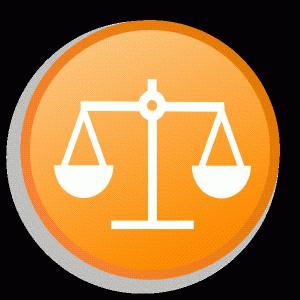Federal Insolvency Law
What is the protection of entrepreneurs, companieswhich went bankrupt in crisis unstable economic conditions? To facilitate such persons liquidation and resale of property, in 2002 the Federal Law "On Insolvency" No. 127-FZ was adopted.
Bankruptcy law of Russia
This is the basic law on insolvency,operating on the territory of the country. Since 1990, it has been revised three times. The economic situation required the introduction of necessary explanations and additions. They mainly concerned changes in the terms of bankruptcy and amounts of unfulfilled obligations, as well as clarification of the sequence of sale of the existing property of the debtor enterprise. The law introduces a new institution of arbitration administrators and provides for independent examination. Now the judges have no need to make economic decisions. For this, expert opinions of specialists will be required.
Constantly replacing each other's economiccrises in the country demanded the creation of a national infrastructure of bankruptcy, which was fixed in the current legislation. It was necessary to specify the vague formulations. The insolvency law, adopted in 2002, specified the exact definition of the amount of arrears in monetary terms (500 minimum salaries at the moment), as well as the period of non-repayment of debts (more than three months). The minimum debt threshold of insolvency is also defined. It is only 42 thousand rubles.
Payments on time and reputation
Thus, the payment discipline becomes tougher. The creditor enterprises now have the grounds to directly apply to the court with the demand to collect the debt after three months. The lawsuits are no longer tight because of uncertainty, as before. Therefore, serious owners of companies in order to maintain their reputation at a high level, you have to monitor the payment of debts on time. The dynamics of settlements should now also be carefully controlled by the owners.
The insolvency law obliges the headdebtor enterprise to apply to the court if it finds out in the financial analysis of tangible assets that when paying out the requested debts, one creditor will no longer be able to pay the existing debt to other legal entities. For failure to comply with this requirement, rather strict sanctions are provided. It is also the duty to cover the debt of the enterprise from personal funds, and deprivation of the right to occupy a leading position, and even criminal liability.
Observation period
But in relation to property interestsThe federal bankruptcy law provided relief to the insolvent debtors. Now the tangible property and bank accounts are not arrested at the request of creditors for the period of the trial, contributing to the slow "dying" of the enterprise. The arbitral tribunal introduces an observation period during which the firm functions as usual, and the interim manager monitors all financial transactions and transactions.
Bankruptcy of credit organizations of energy-fuel monopolies
In addition to the basic law, for organizations that havebanks or other financial structures have loans, there is also Law No. 40-FZ "On Insolvency of Credit Institutions", adopted in 1999. If the measures of financial recovery or reorganization did not bring the desired result, the arbitration court recognizes the inability of the organization to fulfill the monetary claims of creditors, that is, its bankruptcy.
For large economic and financial corporationsRussia is provided with separate conditions for bankruptcy, which are fixed and explained in the law "On the features of insolvency of subjects of natural monopolies of the fuel and energy complex" No. 122-FZ, passed in 2005.
</ p>








